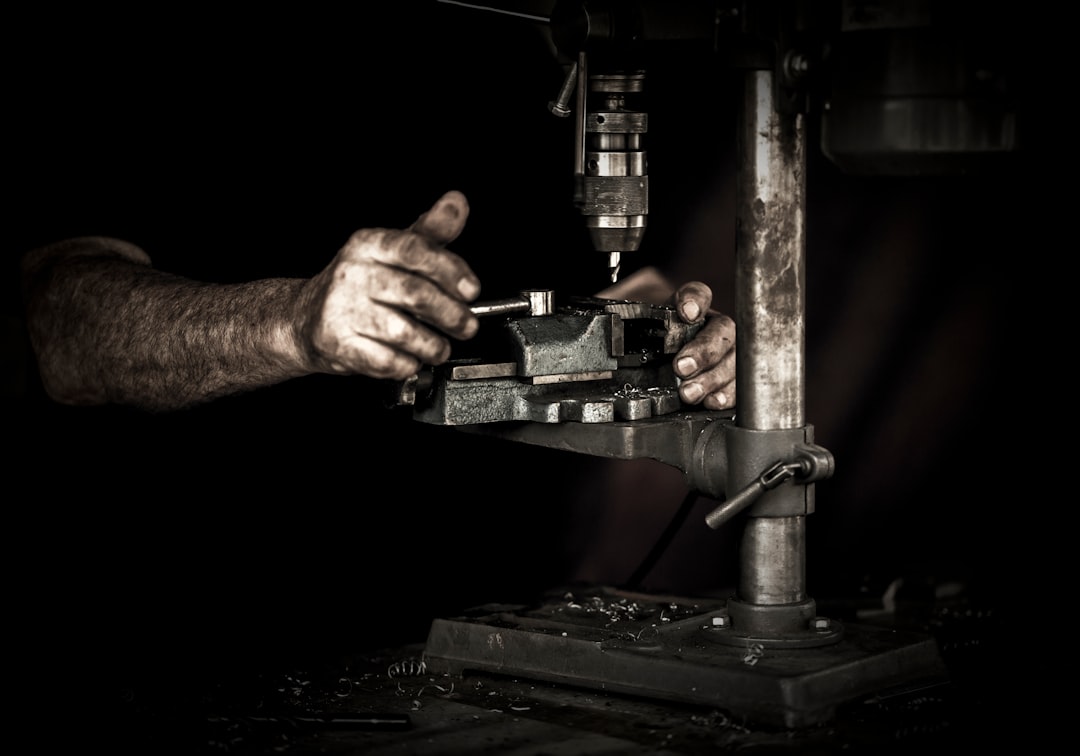Engineering Machinist Kaiwhakamahi Pūrere
Engineering machinists create, assemble and repair metal products by interpreting designs, measuring metals, and operating machines to cut and shape them.
Engineering machinists may do some or all of the following:
- interpret engineering drawings and instructions
- measure and mark up materials for cutting
- operate machines to cut and shape the materials
- weld parts together
- test finished products
- design tools and equipment using computer-aided design (CAD) software
- clean, maintain and repair machinery.
Physical Requirements
Engineering machinists need to:
- be reasonably fit and strong
- have good hand-eye co-ordination and steady hands
- have good eyesight (with or without corrective lenses)
- be comfortable working in confined spaces or at heights.
Useful Experience
Useful experience for engineering machinists includes:
- work using tools or machines
- manual labour
- welding.
Personal Qualities
Engineering machinists need to be:
- accurate, efficient and organised
- safety-conscious
- able to work well in a team
- good at communicating
- reliable and hardworking.
Skills
Engineering machinists need to have:
- knowledge of different metals and materials
- the ability to operate specialised tools and machinery
- the ability to read and interpret plans and drawings
- knowledge of health and safety procedures
- the ability to perform simple calculations
- skills with computer-aided design (CAD) software and computerised numerical control (CNC) machines
Conditions
Engineering machinists:
- may work regular business hours or do shift work
- work in workshops or factories
- work in conditions that may be dirty, noisy, hot or cramped.
Subject Recommendations
No specific secondary education is required to become an engineering machinist but maths, physics, English and construction and mechanical technologies to at least NCEA Level 2 are useful.
For Year 11 to 13 learners, trades academies and the STAR and Gateway programmes are good ways to gain relevant experience and skills.
These programmes may help you gain an apprenticeship, but do not reduce the amount of time it takes to complete it.
Related Courses
Engineering Machinists can earn around $48K per year.
Chances of getting a job as a Engineering Machinist are good due to a shortage of people interested in this type of work.
Pay for engineering machinists varies depending on experience.
- Apprentice engineering machinists may start on the training minimum wage or minimum wage with pay increasing as they learn skills or complete unit standards.
- Qualified engineering machinists usually earn up to $80,000 a year.
- Highly experienced engineering machinists who manage teams or specialise in making complicated products may earn up to $103,000.
Source: Kelly Services, '2019 Salary Guide', March 2019.
Engineering machinists may progress to work:
- as supervisors or managers
- in product design or technical sales.
Engineering machinists usually specialise in one of the following roles:
- CNC Operator
- CNC operators program computers to make metal parts at a very fine level of detail.
- Fitter and Turner
- Fitters and turners make parts for factory machines and equipment.
- Fabricator
- Fabricators cut, bend and weld together sheets of metal to make metal products.
- General Engineer
- General engineers do a wide range of maintenance work, including welding and fabrication.
- Machining Engineer
- Machining engineers make parts that require a high level of precision. They use a mix of computer, machine and manual skills.
- Metal Casting Engineer
- Metal casting engineers produce parts from molten metal.
- Maintenance Engineer
- Maintenance engineers maintain machinery and production lines in factories.
- Toolmaker
- Toolmakers make dies (which press shapes out of metal) and moulds (which can be filled with liquid metal). These are used to make everyday items.
Years Of Training
4 years of training usually required.There are no specific entry requirements to become an engineering machinist.
However, most employers prefer you to have, or be working towards a New Zealand Certificate in Mechanical Engineering – Trade (Level 4).
In your last year of training you will specialise in one of:
- fitting and machining
- general engineering
- machining
- maintenance engineering
- metal forming
- toolmaking.
Apprentice Training NZ (ATNZ) employs, trains and places mechanical engineering apprentices. You can also get an apprenticeship directly through an employer.
Competenz oversees mechanical engineering apprenticeships.

 Epsom Girls Grammar School
Epsom Girls Grammar School